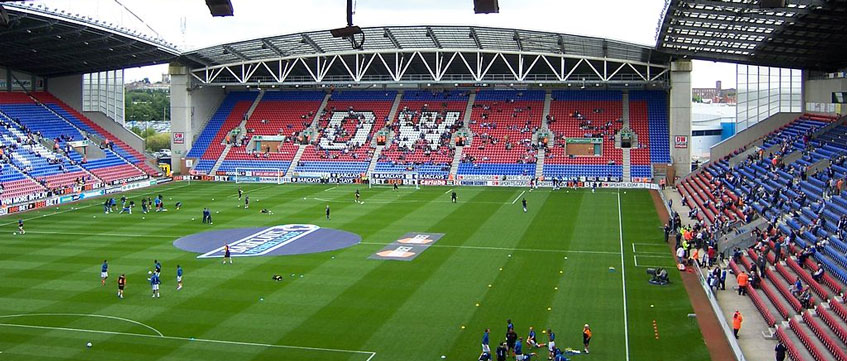Wigan Athletic loses football stadium business rates appeal
Championship football club Wigan Athletic has lost a test case appeal that the effects of relegation should be reflected in the calculation of business rates for stadiums.
The Upper Tribunal (Lands Chamber) rejected the club’s appeal against a Valuation Tribunal for England decision, rejecting its claim that relegation constitutes a “material change of circumstances” that should lead to an immediate reduction in business rates.
The decision will come as a huge blow to other football clubs, including Sunderland, which have also suffered the financial effects of relegation from the Premier League and had been monitoring this case closely.
Championship football club Wigan Athletic has lost a test case appeal that the effects of relegation should be reflected in the calculation of business rates for stadiums.
The Upper Tribunal (Lands Chamber) rejected the club’s appeal against a Valuation Tribunal for England decision, rejecting its claim that relegation constitutes a “material change of circumstances” that should lead to an immediate reduction in business rates.
The decision will come as a huge blow to other football clubs, including Sunderland, which have also suffered the financial effects of relegation from the Premier League and had been monitoring this case closely.
The case relates to Wigan’s double relegation from the Premier League in 2013, and from the Championship to League One two years later, after which, according to figures from Colliers International, it was left paying more than six times the average business rates of its rivals in the third tier: £590,000 compared with an average of £88,000.
Wigan is now back in the Championship, but is once again in the relegation zone as the season approaches the halfway point.
The club sought to have the rateable value of its DW Stadium – the figure used to calculate the business rates that are paid – reduced from £1.1m to £255,000 from December 2015 until all properties in England and Wales were then revalued on 1 April 2017.
It told the Upper Tribunal that the two relegations had reduced its income, including television money, from £58.46m during 2012/13, when the club was in the Premier League, to £18.02m while in League One during 2015/16.
It argued that since its league status was crucial to the rateable value when the rating list was compiled, the list became inaccurate when the club was relegated, and should have been changed.
However, Judge Elizabeth Cooke at the UT dismissed the appeal, ruling that a change in a team’s performance, however dramatic, could not be “shoe-horned” into the statutory criteria for a material change of circumstances.
Calling for change in the way that football stadiums are valued, she added: “The method does not seem to us to be fit for purpose any longer given the fundamental changes in the finances of professional football in England and Wales since the introduction of the current league structure and the importance of broadcasting rights in the calculation of fair maintainable trade.”
She said that the problem had been highlighted in this case by “the coincidence of successive relegations with a rating list that remained in force for two years longer than usual”, but that the unfairness nevertheless lies with the method of valuation used when the list was compiled.
Robert Hayton, head of UK business rates at real estate adviser Altus Group, said it was important to remember that it was “the stadium being assessed for tax rather than the club”.
He said: “The cause for concern by the club was purely economic rather than physical but had been exacerbated by the successive relegations coinciding with the government’s unprecedented decision to delay the revaluation from 2015 to 2017 meaning the club paid artificially high rates for an additional two years.”
To send feedback, e-mail jess.harrold@egi.co.uk or tweet @estatesgazette











